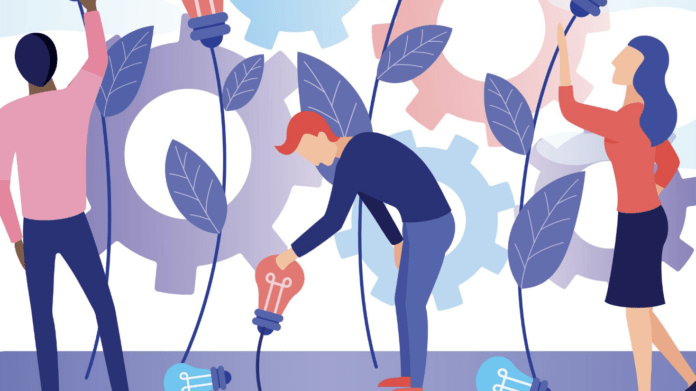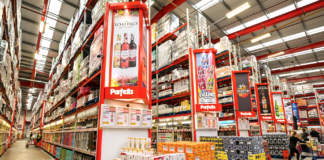Rob Mannion is the chief executive of b2b.store
It’s not easy being green, especially if you’re a wholesaler. Everyone knows the importance of being more environmentally friendly, but as everyone in the sector regularly points out, the gap between wholesalers wanting to be more sustainable and delivering on that ambition can be stark.
After all, wholesalers are middlemen in the supply chain and therefore at the behest of both suppliers and their customers, so efficiencies can often only be marginal in different areas of their business.
Working within those constraints means wholesalers need to be more creative to hit the necessary targets and to be looking in areas that aren’t naturally considered bedfellows of sustainability, such as digital.
It’s one of the less-expected impacts of non-warehouse tech that it can have a positive effect on a business’s carbon footprint, but it’s not uncommon that we receive that feedback from customers after using it for a while.
Most recently, that’s one of the big things we’ve heard from users of our B2B WhatsApp solution. Several of the wholesalers that have adopted the technology have used the power of engagement their new channels provide to cut down on the amount of print communications they produce and send out.
Read more: B2B.Store’s Open Banking solution hits 3,000 monthly transactions
Printed mailers showing off the latest deals and weighty product catalogues have been mainstays in a wholesaler’s business for as long as most of us can remember. But with a focus on the resources being used to maintain that – not to mention the cost of doing it – alternatives are being sought.
B2B WhatsApp has provided that in a way email or SMS hasn’t been able to previously because it’s possible to guarantee the promotion leaflet has been sent and, in many cases, read. The level of engagement is much higher, too, meaning the number of printed materials can be cut.
One wholesaler has decided to remove all printed communications from its business. It’s doing this using a combination of WhatsApp and our B2B e-commerce solution, which is regularly updated to ensure product lines and prices are always up-to-date and can be shared as a reference point to replace catalogues. It’s simple, but highly effective – although not everyone is doing it.
Online ordering is another important tool to reduce the carbon footprint associated with your company. Not only does it improve workflow in the business, but it allows customers to streamline their visits to depots – reducing trips to once-weekly big shops instead of regular pick-ups. Some wholesalers have used the flow of regular orders into their business to make more efficient route plans for deliveries to reduce road miles, and introduced backhauling to bring recyclable materials back to their depot to cut waste.
Efficiency breeds efficiency and it’s a trend that will continue as the focus on sustainability increases. A lot of our solutions are inspired by the need to simplify processes, save time or money and to tackle pain points wholesalers or their customers feel. The knock-on effect can often be saving on various resources, which is key when it comes to being more sustainable.
If that can help wholesalers achieve their sustainability aims, then perhaps we can make it a little bit easier to be green.








